General Secretary's Report
Ard Fheis/Annual Delegate Conference 1990
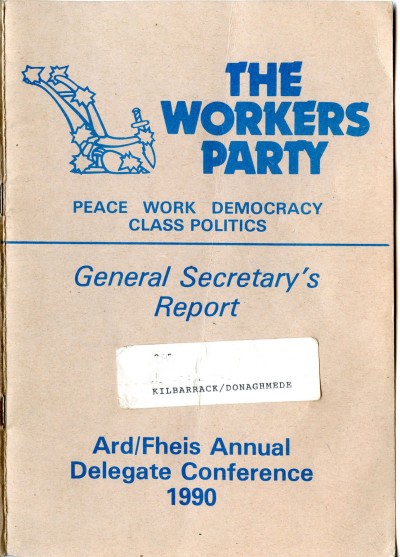
| Date: | 1990 |
|---|---|
| Organisation: | The Workers' Party |
| View: | View Document |
| Discuss: | Comments on this document |
| Subjects: |
Please note: The Irish Left Archive is provided as a non-commercial historical resource, open to all, and has reproduced this document as an accessible digital reference. Copyright remains with its original authors. If used on other sites, we would appreciate a link back and reference to The Irish Left Archive, in addition to the original creators. For re-publication, commercial, or other uses, please contact the original owners. If documents provided to The Irish Left Archive have been created for or added to other online archives, please inform us so sources can be credited.
Commentary From The Cedar Lounge Revolution
22nd April 2013
This document provides an interesting comparison with the General Secretary’s Report from 1988 which was posted up previously. The latter was produced just prior to the events of 1989, this document produced just after many of them. By 1990 Eastern Europe states had moved from the orbit of the USSR although the CPSU remained predominant in that state. But remarkably during the same period the Workers’ Party had grown, increasing its Dáil representation to 7 seats. This newfound success is referenced explicitly as both opportunity and challenge:
It has increased our political and organisational opportunities but it has also increased the risks for the party if we make political or organisational errors. Our success has projected the strengths of the party into the public consciousness in a way never achieved before but it can also expose our weaknesses if we fail to deal with these.
And it notes that ‘on the positive side we have now achieved the ‘official’ status of a full political party in Dáil Éireann. We have a first class Dáil team with a high level of political acumen. We have a high level of credibility with the working class and a solid electoral base in the whole of Dublin, and an expanding base throughout the country. All this has helped to build the morale of the party members and supporters and has given some hope to the victims of cuts in health, education and social services, to the unemployed, and to those forced to emigrate. We now have a major national and international dimension to our representations.’
But it also notes that:
… it could be argued that our party is not ready for this greatly expanded role but we will never be ready unless we take bold steps to meet all the new challenges.
In terms of the international context it notes that:
Most importantly for us as Socialists, the Socialist Counties have undergone dramatic changes, economically and politically and are likely to see an even greater pace of change in the decades ahead.
And that reflects back to the following:
All of these factors and the many theoretical and practical questions for socialists vis-a-vis the Market, the changing structure of classes, ecology, the role of the State, democracy an the role of the Party, all require careful analysis in the Irish context.
And tellingly it continues:
<
blockquote>The pace of change is now such that many Socialists are disconcerted and confused. This is particularly the case for those with a poor theoretical grounding or for those who based their politics on simplistic or dogmatic assumptions about the nature of the world or of change itself. In some respect the Workers’ Party has a number of advantages (and a number of weaknesses) when facing this new phase of political reconstruction. This Ard Fheis can, and will, I’m sure be a good start to us in this process.
As with the other General Secretary’s Report from 1988, an overview of the life of the party is offered across the broad range of its activities. Another notable point is that on page 24 under International Affairs it says;
In recent years we have achieved limited recognition from Governments in some Socialist Countries and have established a dialogue with other Workers’ Parties, Socialist and Communist Parties in many parts of the World.
More from The Workers' Party
The Workers' Party in the archive
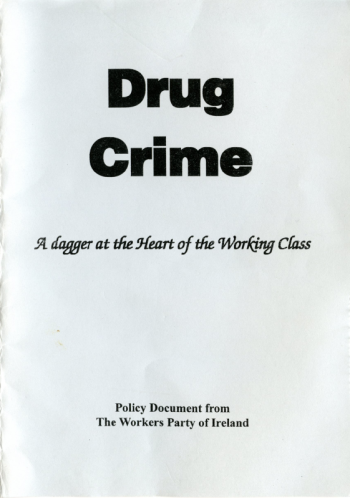
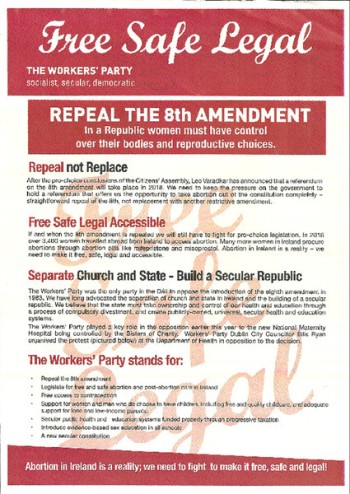
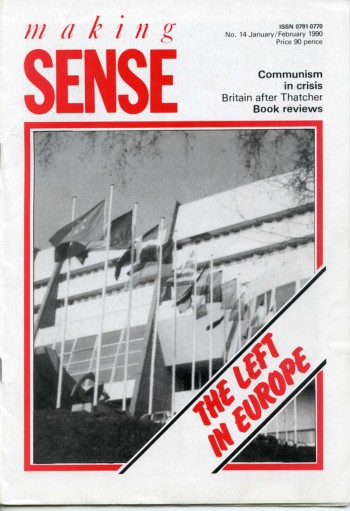
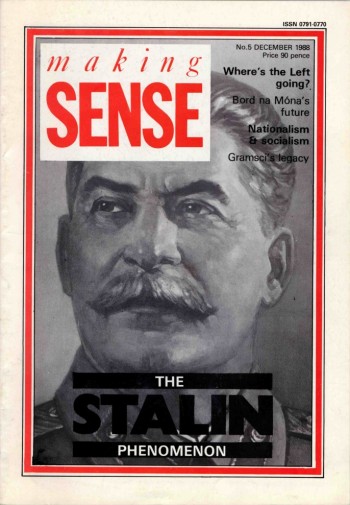
Comments
No Comments yet.
Add a Comment
Comments can be formatted in Markdown format . Use the toolbar to apply the correct syntax to your comment. The basic formats are:
**Bold text**
Bold text
_Italic text_
Italic text
[A link](http://www.example.com)
A link
You can join this discussion on The Cedar Lounge Revolution
By: Jim Monaghan Mon, 22 Apr 2013 09:06:17
An impression. The language had shifted. If it was say McGiolla it might have the same conclusion but it would not have the jargonistic language. This sounds like it could have come from any Moscow line party.
Reply on the CLR